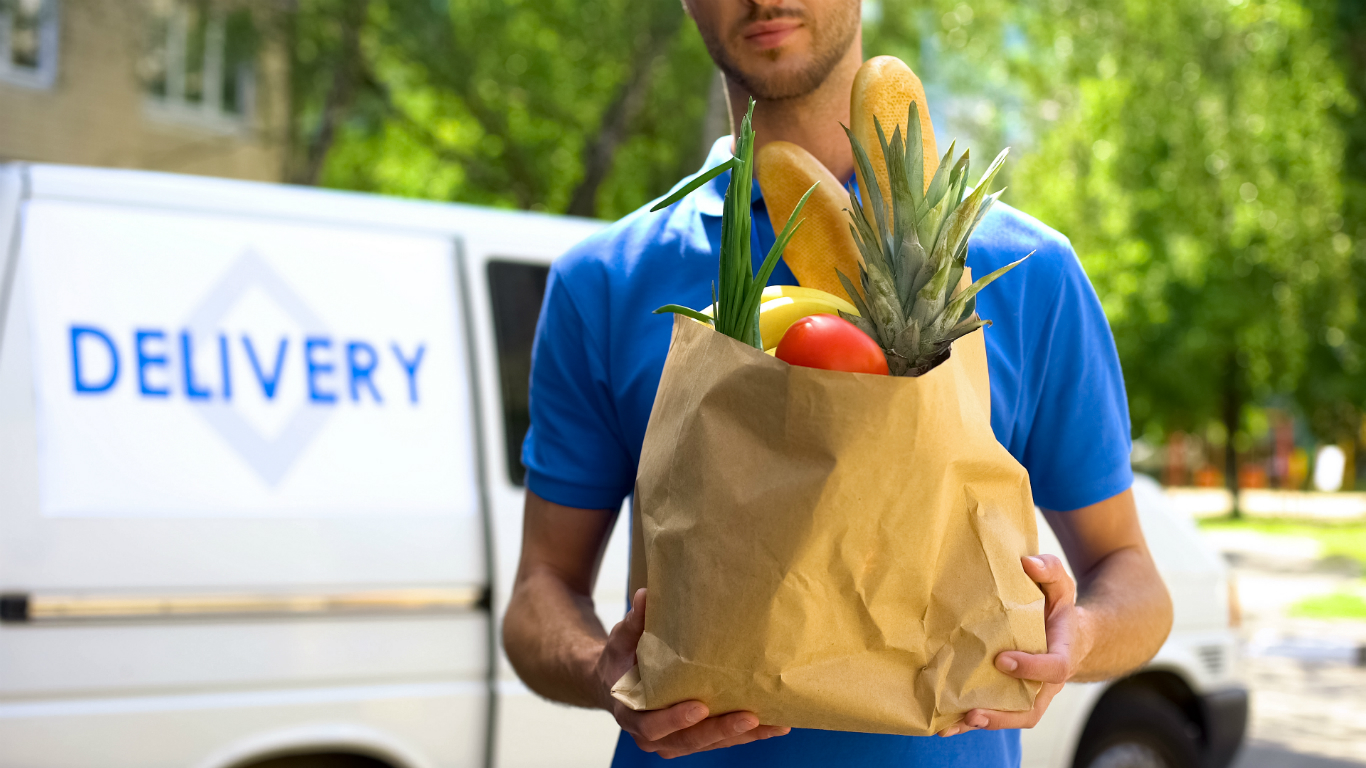Services
America’s Largest Grocery Chain Plans 30-Minute Delivery

Published:
Last Updated:

The Kroger supermarket company wants to get your groceries to you so fast that actually going to the store yourself will seem like a waste of time. The firm is currently testing a new “need-it-now” service that would deliver both food and non-food items to customers within 30 minutes of ordering — faster than you can get a pizza in most cases.
According to a story on the 30-minute program in Supermarket News, the new service, called Kroger Rush, is currently available, with a $5.95 delivery fee, only in the Cincinnati area and only through a dedicated app. It is limited to customers within three miles of the test stores.
Kroger Rush hasn’t been officially announced, but there is an FAQ page about the service on the company website. The page describes 30-minute delivery as “our goal,” but warns that “there are a number of factors that impact that time: number of orders received, shopper/driver availability and order size.”
In an article reporting on the new initiative, members of the Forbes RetailWire Contributor Group, which analyzes retail trends, raised some issues about Kroger Rush. “Needing groceries to be delivered in 30 minutes is not an everyday occurrence,” Bob Amster, principal at Retail Technology Group, pointed out, while Neil Saunders, managing director of Global Data, added “The biggest question is how Kroger intends to make money from this.”
Kroger — whose brands include Kroger itself, Dillons, Fred Meyer, and Ralphs, among many others — is by far the largest grocery chain in the country, with sales exceeding $105 billion in 2017 (number-two chain Albertson’s racked up a mere $57.4 billion in comparison). Its units are also among the most popular stores in America.
Locked in competition with Walmart and Whole Foods for a share of the grocery delivery business, the Cincinnati-based chain rolled out its own delivery service, called Ship, last summer in several areas. In addition, it has expanded its partnership with Instacart to reach other markets and established an exclusive U.S. relationship with the U.K. online supermarket company Ocado, with plans to build as many as 20 e-commerce warehouses over the next three years.
Kroger has also tested unmanned-vehicle delivery in Texas and Arizona, but has thus far not tried getting groceries to customers by drone — though the potential for food delivery is one of the many ways in which drones are changing the world.
The average American spends $17,274 on debit cards a year, and it’s a HUGE mistake. First, debit cards don’t have the same fraud protections as credit cards. Once your money is gone, it’s gone. But more importantly you can actually get something back from this spending every time you swipe.
Issuers are handing out wild bonuses right now. With some you can earn up to 5% back on every purchase. That’s like getting a 5% discount on everything you buy!
Our top pick is kind of hard to imagine. Not only does it pay up to 5% back, it also includes a $200 cash back reward in the first six months, a 0% intro APR, and…. $0 annual fee. It’s quite literally free money for any one that uses a card regularly. Click here to learn more!
Flywheel Publishing has partnered with CardRatings to provide coverage of credit card products. Flywheel Publishing and CardRatings may receive a commission from card issuers.
Thank you for reading! Have some feedback for us?
Contact the 24/7 Wall St. editorial team.